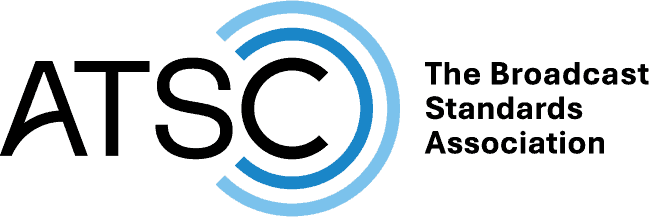- About
- Members
- Sponsors
- Subcommittees
- Technical Documents
- News
- Events
- Spotlight ATSC 3.0
- Contact Us
- Member Login
- Member Meetings
- Advanced Search
Search Site
Member Links
- About
- Members
- Sponsors
- Subcommittees
- Technical Documents
- News
- Events
- Spotlight ATSC 3.0
- Contact Us
- Member Login
- Member Meetings
- Advanced Search
Term
rely (up)on
Posted on April 1, 2015 in
A formulaic expression used throughout the DASE Standard to indicate the level of expectation which a DASE Application may have regarding the behavior of a DASE System; the expression shall not rely (up)on indicates that no expectation of behavior may be assumed.
region
Posted on April 1, 2015 in
A geographical area consisting of one or more countries.
reference receiver
Posted on April 1, 2015 in
A physical embodiment of hardware, operating system, and native applications of the manufacturer’s choice, which collectively constitute a receiver for which specified transmissions are intended.
receiver
Posted on April 1, 2015 in
Any device capable of receiving and consuming data carried on either broadband or narrowband network.
random access
Posted on April 1, 2015 in
The process of beginning to read and decode the coded bit stream at an arbitrary point.
quantizer
Posted on April 1, 2015 in
A processing step which intentionally reduces the precision of DCT coefficients
PSIP event
Posted on April 1, 2015 in
A defined period of time on a virtual channel with associated metadata related to a show.
protected content
Posted on April 1, 2015 in
Media Stream that is protected according to the requirements of A/153 Part 6.
program specific information (PSI)
Posted on April 1, 2015 in
PSI consists of normative data which is necessary for the demultiplexing of transport streams and the successful regeneration of programs.
program segment
Posted on April 1, 2015 in
Portion of a TV program as defined in the traffic format assigned to the program.
News Categories
News Archives
Subscribe
Subscribe to The Standard, our monthly newsletter. Learn More
Join ATSC
ATSC is a membership organization with both voting and observer categories. Voting members include corporations, nonprofit organizations, and government entities, and they participate actively in the work of ATSC. Observers are individuals or entities not eligible to be a voting member.
Subscribe to our Newsletter
Subscribe to The Standard, our monthly newsletter, to stay up-to-date with ATSC news and events around the world.
Site Links
Contact Us
Advanced Television Systems Committee, Inc.
1300 I Street NW, Suite 400E
Washington, DC 20005
Do you have questions about ATSC?
About ATSC
The Advanced Television Systems Committee, Inc., is an international, non-profit organization developing voluntary standards and recommended practices for digital terrestrial broadcasting. ATSC member organizations represent the broadcast, broadcast equipment, motion picture, consumer electronics, computer, cable, satellite, and semiconductor industries. ATSC also develops digital terrestrial broadcasting implementation strategies and supports educational activities on ATSC standards.
© 2024 ATSC








































